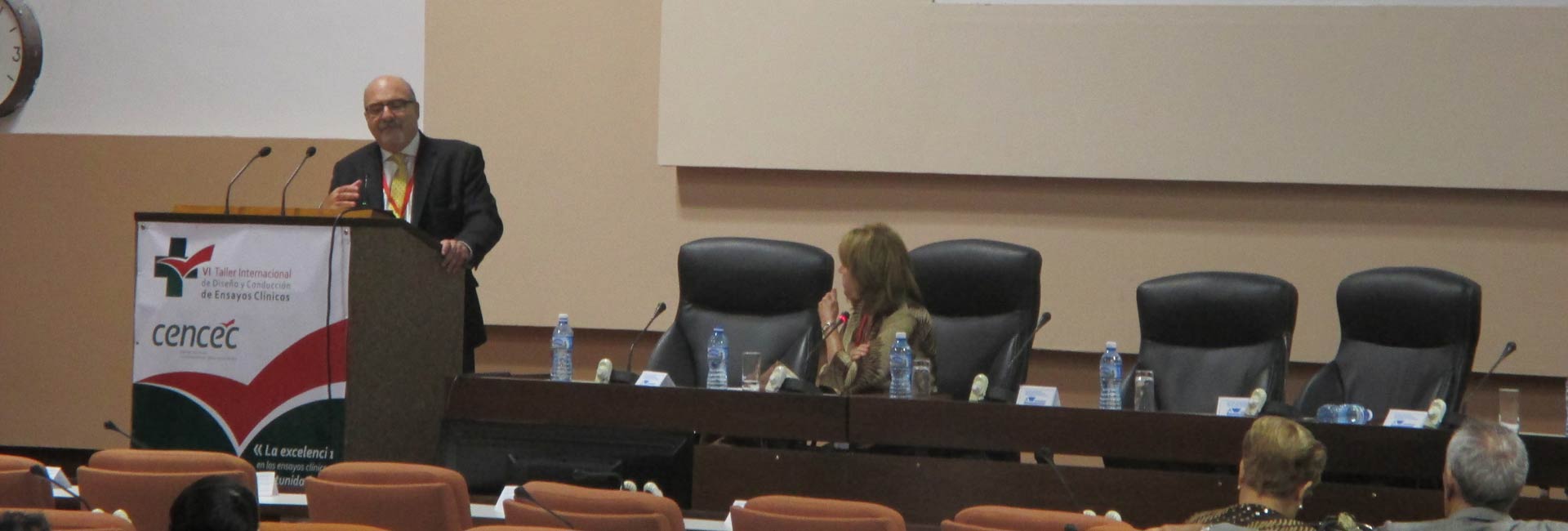

UM’s Institute for Bioethics and Health Policy is exploring opportunities for partnerships and collaborations with Cuba’s academic institutions.
For more than 20 years, the University of Miami Institute for Bioethics and Health Policy has fostered educational and research collaborations with institutions throughout Latin America. Today, the institute is a World Health Organization (WHO) Collaborating Center in Ethics and Health Policy – one of just seven centers worldwide.
“We contribute to WHO’s initiatives related to ethics, on everything from the Zika virus to the role of information technology in health care,” says Kenneth W. Goodman, professor and director of the UM Institute for Bioethics and Health Policy, and co-director of the University of Miami Ethics Programs. “This contributes to the Miller School of Medicine’s mission of research, education and service, including identifying new professional opportunities for students and faculty.”
In keeping with that hemispheric and global approach, the Institute for Bioethics and Health Policy has reached out to Cuba’s academic institutions to explore opportunities for collaboration.
“The world is changing and the University of Miami needs to be front and center, building relationships with Cuban scholars, clinicians and students,” Goodman says, adding that because Cuba’s institutions are state-owned, this effort “raises a host of practical, political and ethical issues.”
About the Photo
Dr. Sergio Litewka, director of the Institute for Bioethics and Health Policy’s international programs, delivers a plenary lecture to scholars at Cuba’s National Coordination Center for Clinical Trials.
Join the Conversation:
Follow on
Twitter:
UM Miller School of Medicine, @umiamimedicine
University of Miami, @univmiami
UM News, @univmiaminews
Goodman noted that the UM Ethics Programs have initiated a project, “Plataforma de Filosofía, Ética y Bioética en Cuba,” to support collaboration among academic institutions and specialists with varying perspectives on Cuban philosophy, ethics and bioethics.
In November 2016, Dr. Sergio G. Litewka, associate professor of surgery and director of International Programs for the Institute for Bioethics and Health Policy, delivered two lectures to Cuba’s National Coordination Center for Clinical Trials (CENCEC), the country’s leading organization for human subjects research.
Litewka gave plenary lectures on “The History of Research Ethics: Tragedy and Progress” and “International Perspectives on Research Integrity” as part of the VI International Workshop on Design and Management of Clinical Trials at the Havana International Conference Center.
Litewka’s visit was coordinated by Dr. Maria Amparo Pascual, the founder and former director of CENCEC. She is now a consultant for the institution as well as a member of the experts group of the Cuban Technical and Scientific Program on Vaccines. The conference was sponsored by the Cuban Ministry of Public Health, the Pan American Health Organization, the National Council of Science Organizations, the Cuban Society of Pharmacology, and Roche, the pharmaceutical company.
“Cuba’s ethics, research and science communities are keen to collaborate with us, and this was an unprecedented opportunity to foster those connections,” says Goodman.
While Cuban scholars do not yet enjoy academic freedom of speech or press, that is reported to be changing, he added, noting that Cuban scientists and clinicians want to be “participants on the global stage.” In keeping with that objective, Cuba’s researchers appear to follow international standards of informed consent and patient privacy when conducting clinical studies.
“We look forward to more opportunities to discuss and study bioethics, public health and health policy with Cuba’s academic community,” Goodman says. “Our students and faculty will benefit from these collaborations as UM’s presence grows in a changing, complex and exciting environment.”
- RICHARD WESTLUND / UM News
